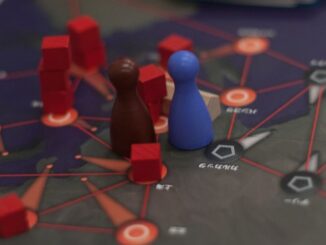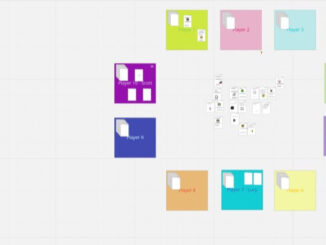
Against the dramatic backdrop of the COVID-19 virus outbreak around the world, how can businesses develop a better understanding of their risks and uncertainties moving forward and stress-test their future opportunities?
Wargaming can help organisations to make better decisions, through a more insightful external perspective of your markets and competitors and look to uncover future opportunities. In addition, it allows ‘stress-testing’ of strategies’ prior to implementation along with predicting competitors’ most likely moves.
Background
Wargaming has its roots in the military and can be traced as far back as ancient Greece.
It was used to great effect by the Prussians and Frederick the Great in the 18th century, ‘Kriegsspiel’ is the German translation of Wargame. The Prussians based their political, diplomatic and military moves through a clear understanding of the underlying dynamics and likely responses with the goal of answering; What will be my opponent’s likely move? And then, what is my response?
The principles of Wargaming lend themselves nicely to the business environment.
What is a Wargame
Paradoxically, a Wargame is neither ‘a war or ‘a game’ it is an internal ‘competitive role-playing simulation hosted in a prespecified future horizon that allows participants to gain insight by playing external third parties e.g. competitors. As the success of any given strategy largely depends on the reactions of third parties – and as we don’t have direct knowledge of these intended reactions, role-playing allows us to help predict these moves.
It also helps organisations avoiding the following:

Where would you utilise a Wargame?
Wargaming has a number of different applications but one of its key strengths is in testing;
- Strategies prior to implementation
- Future market changes
- Plans against new competitors’ or defending against existing threats
Wargaming has been utilised in many other areas such as; crisis planning, change management and training and education. Wargames have been applied in both the public and private sectors.
What does a Wargame program look like?
As part of the overall process, we would recommend the following approach (see picture below). This would begin by preparing a ‘competitor insight dossier’ for each of the specific competitors.
Agreeing the key future events that will likely affect the competitive environment is the next step through a ‘Hypothesis meeting’ – this also helps to build up different scenarios which can be used in the workshop.
Engaging participants before the workshop is important and ensuring that they are properly briefed about the competitor that they will be role-playing is essential.
Wargaming workshop is usually hosted in a prespecified future horizon allowing participants to gain insights through playing key competitors. It is normally conducted over 1-2 days period with each round lasting approximately half a day with presentations back to the full group after each round. The participants in a workshop normally cover a number of cross-functional roles from commercial, sales, market research, finance, manufacturing & R&D. The participants’ are divided into competitor teams with one of the teams playing the home team to bring some objectivity and market orientated perspective. At the end of the workshop, the outputs are analysed and workshop report with recommendations is delivered within two weeks.

Wargaming output and benefits
By undertaking a Wargaming workshop you can help uncover answers to the following questions;
- Who are our competitors?
- What are their strengths and weaknesses?
- What strategies are they pursuing (and how successfully?)
- How are they likely to behave in the future?
- What changes (if any) should we make to our strategy based on competitors’ expected moves
Additionally, the benefits of Wargaming to an organisation are as follows;
- Provides greater external focus and helps develop competitor insight
- Helps to share expertise and uncover intelligence gaps
- It is dynamic process, involves active anticipation and company buy-in
Types of Wargame
Wargaming can be used across different types of organisations, from large mature ones to small start-ups and also for different objectives. Whether this is for a market leader looking to defend their market position or a new entrant looking to move into an uncontested space – the same methodology can be applied.
 In Summary
In Summary
Wargaming can help your organisation develop more insightful external perspective of your markets and better understanding of the risks and uncertainties moving forward.
It is dynamic role-playing simulation that involves active anticipation with a focus on the market, the competitors and their dynamics, as well as on the company itself.
It is an ideal strategic tool to test out global strategies prior to implementation and to enable the company’s ideal ‘positioning’ based on anticipated future market conditions.
‘Well-designed war games, though not a panacea, can be powerful learning experiences that allow managers to make better decisions. By asking a few tough questions, executives can help their organizations be smarter about when and how to play’.
- Business Wargaming….for an uncertain world - 5th November 2020





Be the first to comment